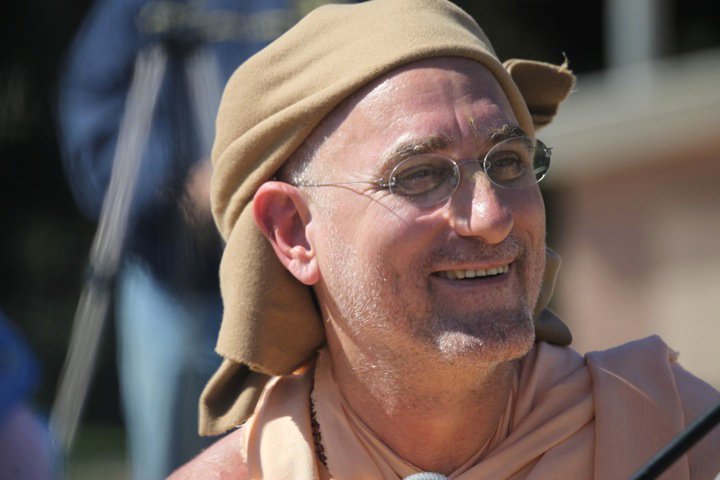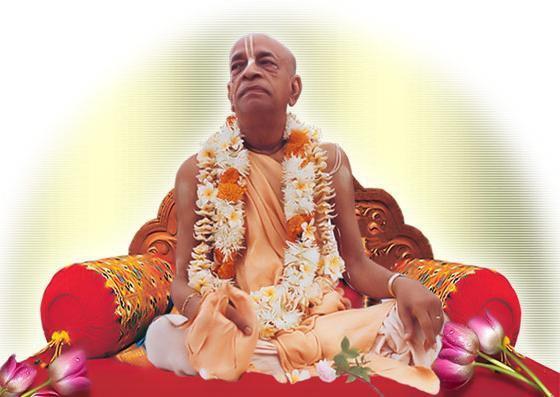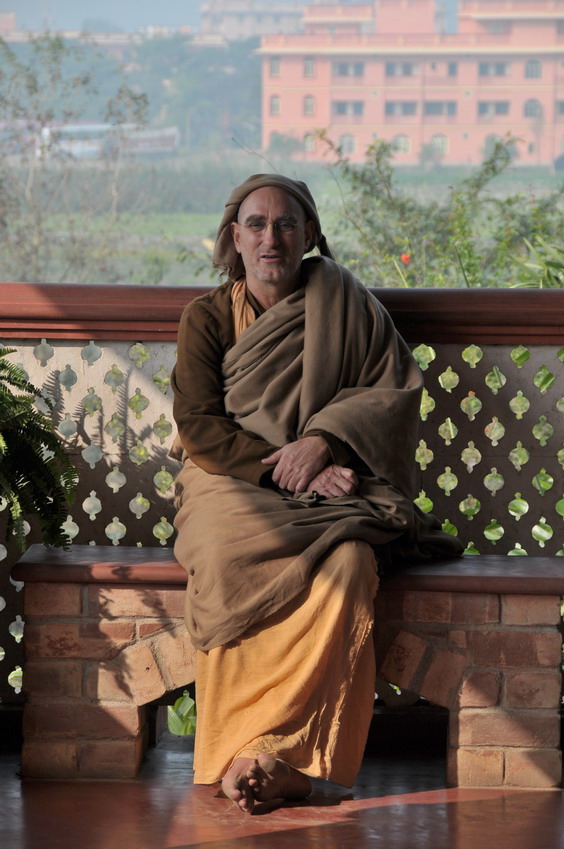Hare Krishna dear devotees,
We hear the term- Time place and circumstances (desa, kala, patra) quite commonly in scriptures. We also try to apply it in preaching, sometimes successfully and sometimes not so successfully. Many a times we get confused how to apply this principle practically, am I compromising too much? Today morning I read a superlative and razor sharp explanation of this principle by HH Bhaktividya Purna swami. I am sharing its transcription with all of you.
Time Place and circumstances
HH Bhaktividya Purna Swami:
Was Yudhisthira running the whole world? Yes. He was practical. Not theory. So it can be. So if we are not able to see it then we have to study it. We have to try to apply it, practice it, then it will come. The practical will come. Where do you start from? Oh, we have time, place and circumstance.
But what is the philosophy in which we say time, place and circumstance? Is it in consideration of the sastra? Is it in consideration of administration based on religious principles? Or is it based on economics? Most people say time, place and circumstance their philosophy is pragmatism. Pragmatism is what’s the quickest, easiest and most efficient way to get something done. No consideration of anything else. If it actually got the work done or made profit, then it’s pragmatic. If there was any obstacle that was created by some theoretical aspects, then that’s impractical.
There is this group of senior Prabhupada disciples, and then there is others who have been here in the zone for a long time, then there is some matajis who are doing the puja we have to take care of, and we have to take care of our brahmacaris. That weighs on the mind, I can’t, just this is what I do and that’s it, I have to consider all these things and balance it. That’s the time, place and circumstance.
When they say time, place and circumstance actually they don’t want to consider time, place and circumstance. Time, place and circumstance actually means whatever I feel like doing that’s what I should be able to do. It’s smoke screen time, place and circumstance. Because it’s not actually.
Time place circumstances – comes from Vedas
You have a temple and there is 300 devotees that live outside that are not from the temple, why aren’t they coming to the temple? Time, place and circumstance. That’s why. If that is your yatra, why aren’t they being considered as part of the equation? Because of the 300 hundred there must be something sincere that you could cultivate. There is a few that are very political or bitter. Okay, leave them for now. Out of the others find some, but are they considered in the equation?
Or is it unless you are in the temple under the direct authority of the temple president and he tells you what to do the way he likes it and you do it, then you are sincere. That’s not time, place and circumstance. That means the time is whatever the temple president says. Place is wherever he is saying it. And the circumstance is whatever it is that’s the way he wants it. ….Time, place and circumstance comes from the Vedas. It doesn’t come from the modern.
The above was straight from HH Bhaktividya Purna swami, sharp and to the point, as always. We should , however apply caution in trying to apply it to judge others. It is always prudent to apply what we have learnt on ourselves. We should see that where I have responsibility and influence, am I applying it correctly, meaning, as per shastra, keeping the principle intact and adjusting the detail due to circumstances, be it my family, in my preaching or in my dealings with other devotees.
Lets hear what Shastra and Srila Prabhupada have to say on it
Expert devotees know how to apply it
The expert devotees also can discover novel ways and means to convert the nondevotees in terms of particular time and circumstance. Devotional service is dynamic activity, and the expert devotees can find out competent means to inject it into the dull brains of the materialistic population. Such transcendental activities of the devotees for the service of the Lord can bring a new order of life to the foolish society of materialistic men. Lord Sri Caitanya Mahaprabhu and His subsequent followers exhibited expert dexterity in this connection. By following the same method, one can bring the materialistic men of this age of quarrel into order for peaceful life and transcendental realization.
Time place and circumstances for Political Leaders
The principles of religion, namely austerity, cleanliness, mercy and truthfulness, as we have already discussed, may be followed by the follower of any faith. There is no need to turn from Hindu to Mohammedan to Christian or some other faith and thus become a renegade and not follow the principles of religion. The Bhāgavatam religion urges following the principles of religion. The principles of religion are not the dogmas or regulative principles of a certain faith. Such regulative principles may be different in terms of the time and place concerned. One has to see whether the aims of religion have been achieved. Sticking to the dogmas and formulas without attaining the real principles is not good.
A secular state may be impartial to any particular type of faith, but the state cannot be indifferent to the principles of religion as above-mentioned. But in the age of Kali, the executive heads of state will be indifferent to such religious principles, and therefore under their patronage the opponents of religious principles, such as greed, falsehood, cheating and pilfery, will naturally follow, and so there will be no meaning to propaganda crying to stop corruption in the state.
Time place and circumstances- role of an Acharya
Now if in this age I advise you that you also live underneath a tree, then it will be difficult to preach. You see? Nobody is accustomed in that way, such severe type of austerity. They must be given, as far as possible, comfortable accommodation otherwise they will not come. They will not take. Now this…. This is adjustment. The acharya knows how to adjust things. The real purpose is how one will take to spiritual consciousness, or Krishna consciousness. Keeping one’s aim to that point some concession may be given. As far as possible, keeping pace with the time, circumstances.
(Srila Prabhupada Lecture, Auckland, Feb. 20, 1973 )
The application necessitates….
Śrutakīrti, as he moved to massage Prabhupada’s side, asked, “Prabhupada, how can we tell the difference between making an adjustment and changing a principle?” Prabhupada’s eyes closed and Śrutakīrti continued to massage. After a few moments, Prabhupada opened his eyes and said, “That takes a little intelligence.”
( My Glorious Master by HG Bhurijana Prabhu)
All glories to Sri Guru and Gauranga.
All glories to Srila Prabhupada.
Your servant,
Giriraj dasa



